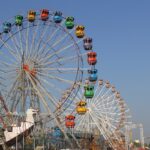Hydrothermal features, volcanic hills, and many beautiful alpine lakes can be found in Lassen Volcanic National Park. Make sure you visit the national park when you visit the Golden State if you like the combination of natural beauty and adventure. Along with the bubbling, acidic pools that smell like cooking sulfur, dense woods and fields of wildflowers cover the hills and valleys. The park has cinder cones, shield volcanoes, composite volcanoes, and plug dome volcanoes. It is one of the few places on Earth where all four types of volcanoes can be found.
Location
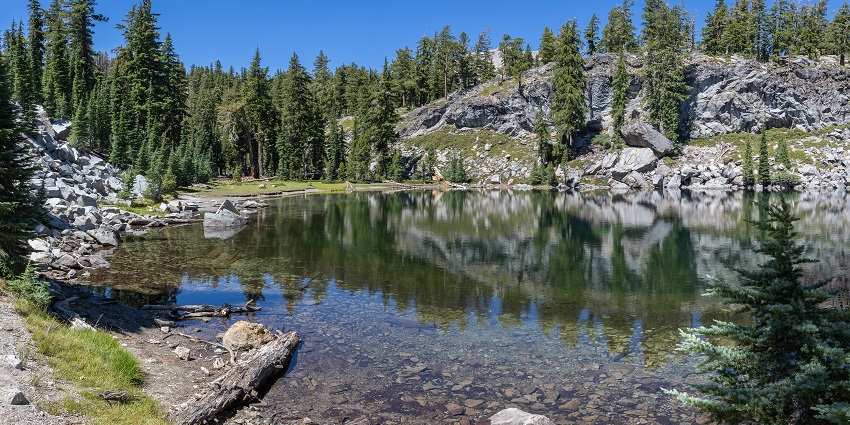
Photo: Frank Schulenburg / Wikimedia Commons
The national park is in northern California, about 50 miles (80 km) from Redding and at the very end of the Sacramento Valley. Many of California’s bigger cities and towns can easily be reached from the National Park, but if you’re coming from a far distance, planning to stay longer is recommended. Besides, the National Park is lesser known in comparison to some of California’s other parks.
Suggested Read: Los Angeles County Museum Of Art
How To Reach
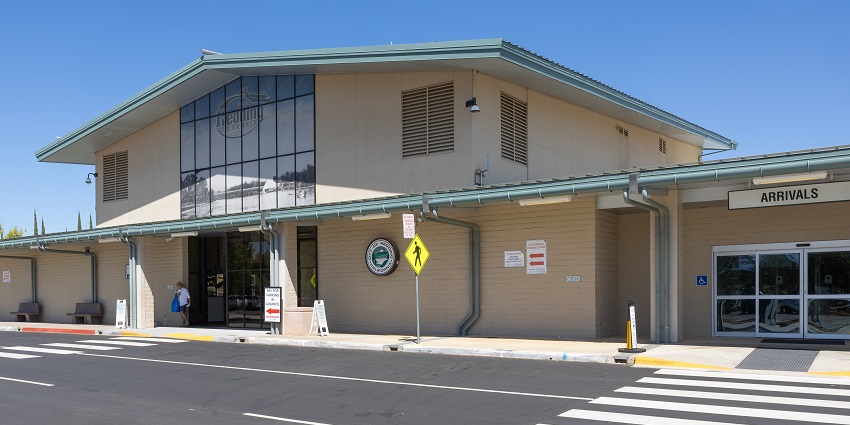
Photo: Frank Schulenburg / Wikimedia Commons
By Air: The largest airports are in Redding and Chico, which are the closest. On I-5, the nearest major airport is in Sacramento, and Reno has more choices.
By Road: A private car is the best way to get to the park. You can rent a car in Redding, Red Bluff, Chico, Susanville, or Reno. On Highway 36, the park is 50 miles east of Red Bluff. On California Route 44, the Lassen Peak Highway is also 50 miles east of Redding.
By Bus: Greyhound and Trailways have bus lines that go to towns within 60 miles of the park, but neither goes into the park itself.
Places To Visit Near Lassen Volcanic National Park
1. Lassen Peak
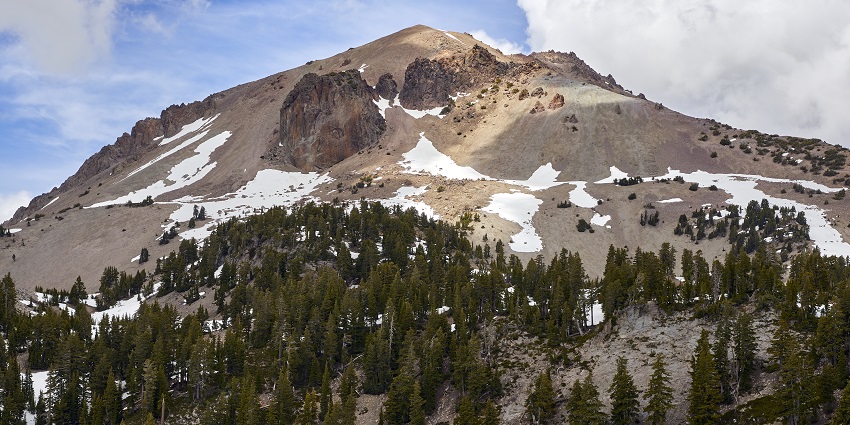
Photo: Frank Schulenburg / Wikimedia Commons
Lassen Peak is the highest point in the national park and it is 10,457 feet tall, one of the world’s biggest plug-dome volcanoes. This is one of the most active volcanoes in the Cascades. The last time it exploded was in 1915 and is still a notable feature in a landscape that is constantly changing because of volcanoes. The peak was named after a gold worker from Denmark, Peter Lassen, who came to the area in 1851.
Timings: 24*7
Entry Fees: N/A
Suggested Read: Einstein Brain In Museum
2. Bumpass Hell
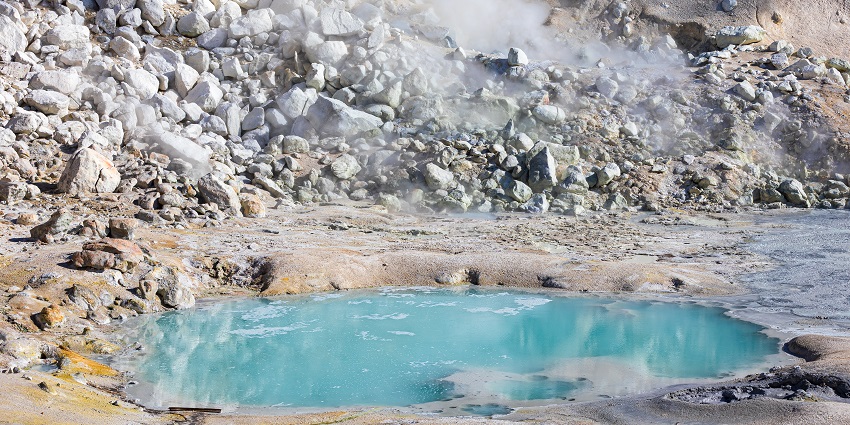
Photo: Frank Schulenburg / Wikimedia Commons
Bumpass Hell is the hottest and most active geothermal feature in the national park. It has mud pots, boiling springs, steam vents, and fumaroles spread over 16 acres. Kendall Vanhook Bumpass was the first to find Bumpass Hell in the late 1800s. On his first visit, Kendall Bumpass lost his leg when he broke through the fragile top of a steam geyser. His leg went into the deep, boiling water and steam and caught fire. Kendall Bumpass felt like he was in Hell.
Timings: 24*7
Entry Fees: N/A
3. Fantastic Lava Beds
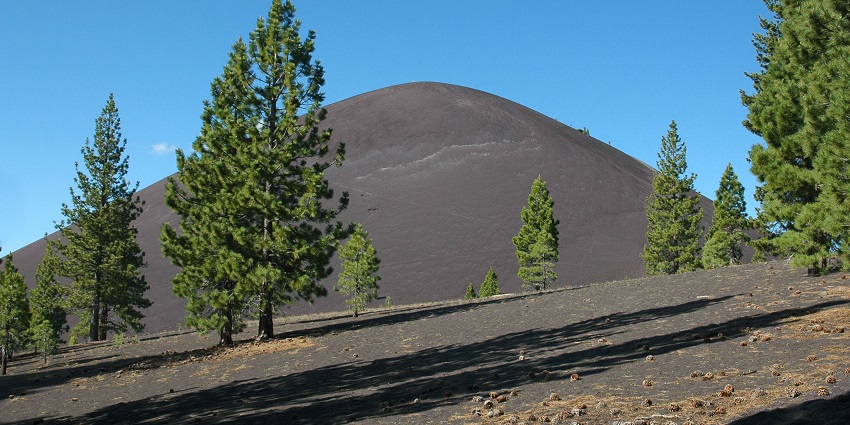
Photo: DimiTalen / Wikimedia Commons
The Cinder Cone volcano is one of four types of volcanoes inside the park. It is on the eastern side of LVNP. In 1650, a cinder cone erupted with such force that it spewed ash over 30 square miles and sent two massive flows of basaltic lava from its base. These lava flows destroyed everything in their path, blocked nearby creeks, and eventually led to the formation of Snag Lake to the northeast and Butte Lake to the north.
Timings: 24*7
Entry Fees: NA
Suggested Read: Crater Lake National Park Oregon USA
4. Mount Tehama
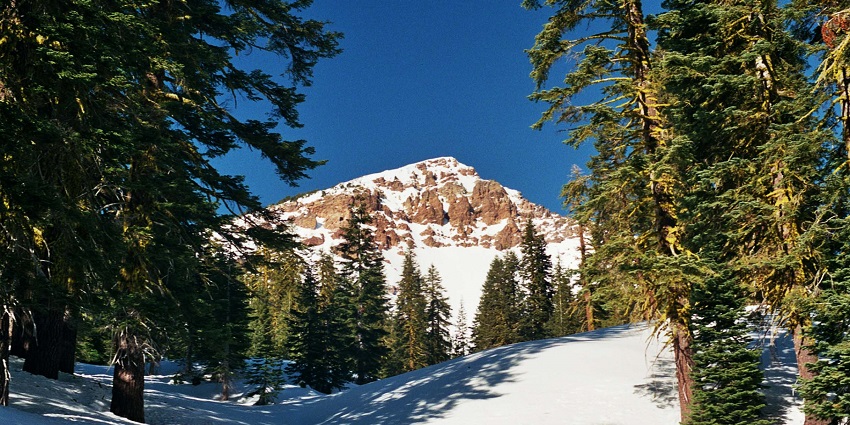
Photo: Ryan Grimm / Wikimedia Commons
Mount Tehama was once an impressive volcanic formation, but it no longer exists in its original form. Approximately 60,000 years ago, this volcano stood tall, reaching its peak before eventually eroding and collapsing over time. With an estimated height of 11,000 feet and a base width of 15 miles (just under the size of Shasta), Mt. Tehama used to be much bigger than any other volcano in this area.
Timings: 24*7
Entry Fees: NA
5. Kings Creek Falls
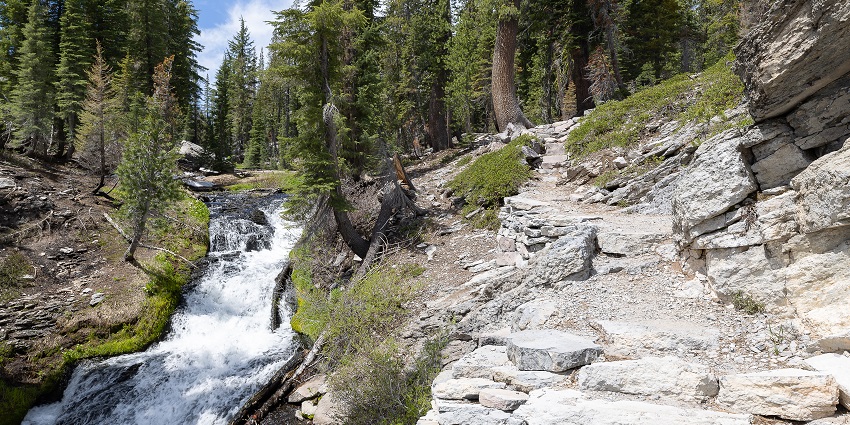
Photo: Frank Schulenburg / Wikimedia Commons
The trailhead to Kings Creek Falls is right in the middle of the national park. It’s a great spot to start exploring the park’s backcountry or just to enjoy a nice waterfall. The path to the waterfall goes downhill along a creek the whole way. The way down is easy, but keep in mind that the way back is all uphill. The beautiful Kings Creek Falls, the 40-foot waterfall at the end of the trail, is the main reason to go on this walk.
Timings: 24*7
Entry Fees: N/A
Suggested Read: Mammoth Cave National Park
Where To Stay
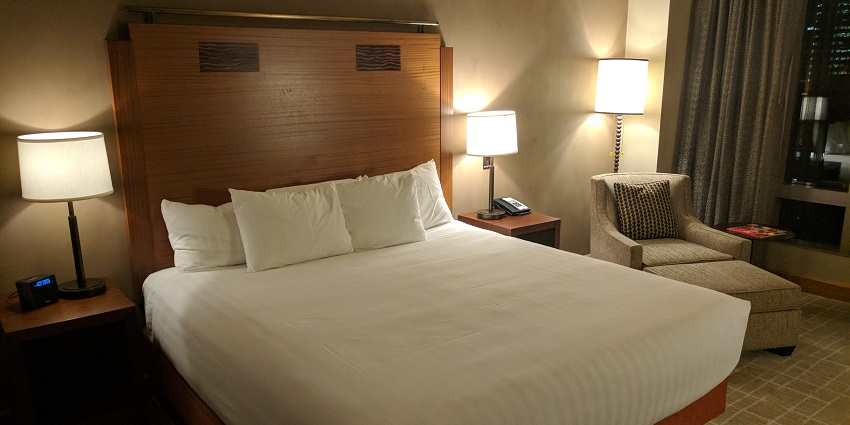
Photo: Kurt Kaiser / Wikimedia Commons / Image For Representation Only
The most comfortable place to stay is inside the park, but the park only has camping and a few very basic cabins or lodge rooms. The park offers excellent camping facilities, featuring well-spaced sites with ample shade for a comfortable outdoor experience. You can enter a nearby state park if you can’t get into a site. Chester offers a range of excellent hotel options for your stay, with numerous accommodations available in this charming small town.
Where To Eat
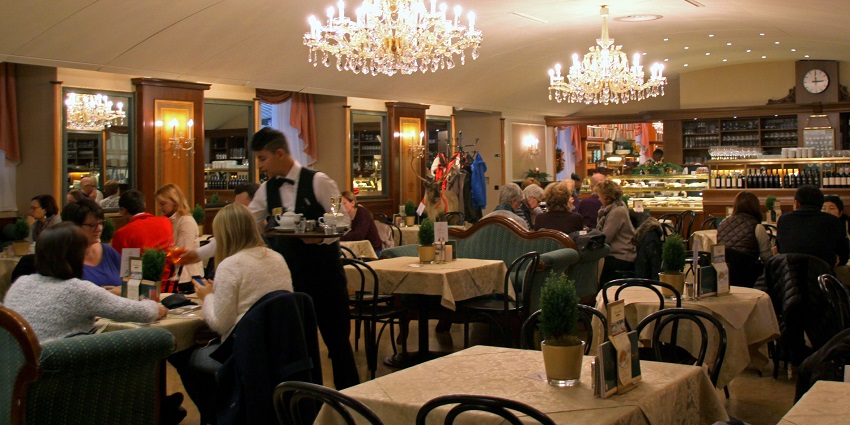
Photo: Erbeer Combino / Wikimedia Commons / Image For Representation Only
Even though there aren’t many restaurants in the National Park itself, many are close to Lassen Volcanic. The tourist centre does have a café, though. Depending on what you have planned for the day, you might want to pick up some food for lunch to take with you. Several stores are nearby, including Holiday Market in Chester, Mineral Grocery in Mineral, Secureway in Burney, and more.
Suggested Read: Great Smoky Mountains National Park
Best Time To Visit
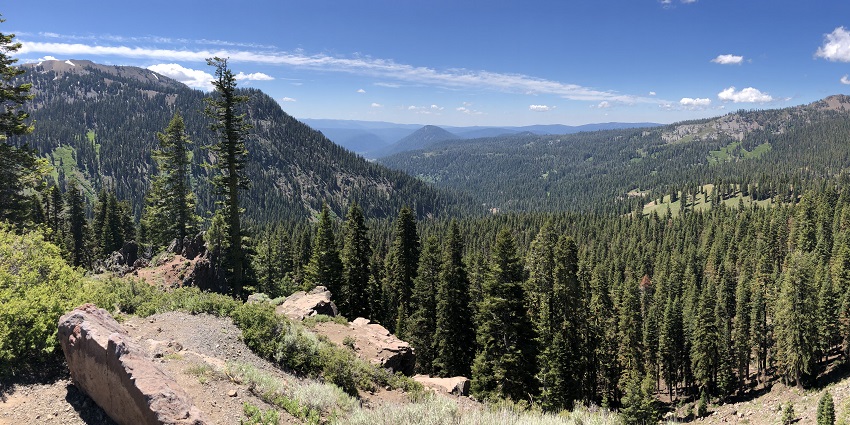
Photo: SlapTheWorld / Wikimedia Commons
The national park is the best place to visit after the snow melts and the weather gets nice and dry in the summer (July to September). Plan to visit in the summer or early autumn unless you love snow and are okay with seeing only some parts of the park. You will be able to get into the park more quickly in the autumn (October to November), winter (December to March), or even spring (April to June). However, from November to April, you can go sledging, cross-country skiing, mountain skiing, and snowboarding when it snows.
Other Factors To Consider

Photo: ian dooley / Unsplash / Image For Representation Only
Average Cost Of The Trip
The cost of a trip to the national park depends on how you get there, where you stay, and what you do there. Driving, camping, and cooking your food could cost between $175 and $200 for three days, which would cover gas, campsites, and entrance fees. Travellers in the middle range could spend $500 to $600 (₹42,193.46 – 50,632.15) on hotels, restaurants, and gas. The price could increase from $900 to $1,000 ( ₹75,948.23 – 84,386.92) for a trip with guided walks and excellent lodging.
Tips For Travellers
- As the weather changes quickly, even in the summer, remember to bring clothes. The weather can change rapidly, especially at higher levels.
- Popular spots like Lassen Peak and Bumpass Hell can get busy. If you get there early, you can park and have a more peaceful time.
- This free program is a fun and helpful way for kids to learn about the park and earn a badge.
- The park’s hot springs, fumaroles, and mud pots can be seen at Bumpass Hell and Sulphur Works.
- There are few services in the park, so bring enough food and drink, especially if you want to go on long hikes or have a picnic.
Suggested Read: Bryce Canyon National Park
Lassen Volcanic National Park offers countless awe-inspiring vistas and unique geological formations, making it an ideal destination for nature lovers. With its rich history and wide range of activities, a trip to Lassen promises memories that will last a lifetime. Plan a trip with TripXL and discover the natural wonders that await at this extraordinary destination.
Cover Photo: Priya Karkare / Unsplash


 WhatsApp
WhatsApp
 Twitter
Twitter


